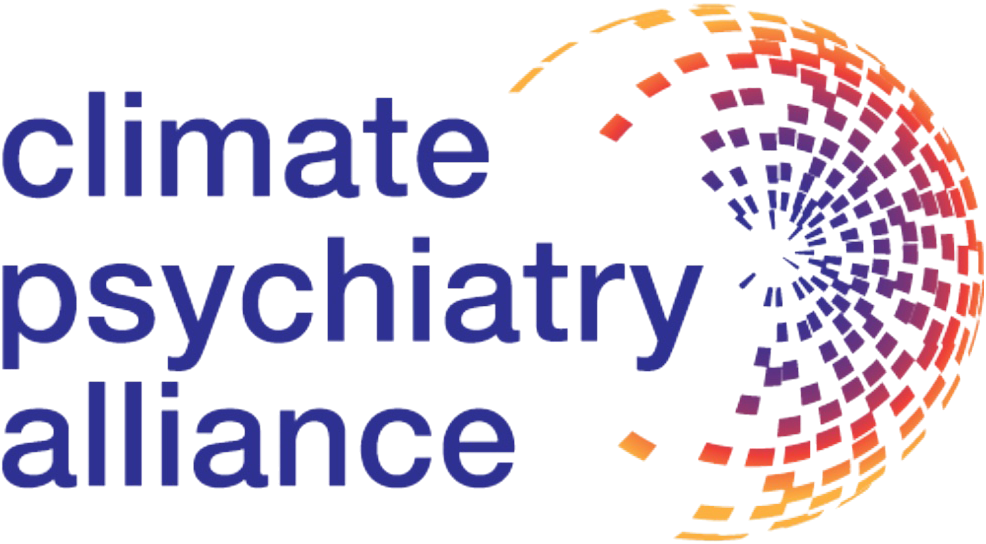Disproportionate Impact of
Climate Change on
Minority Mental Health Populations
— Carissa Caban Aleman, MD
Research has demonstrated that climate change is already causing and will continue to cause a series of health impacts that vary across different regions of the world. The level of vulnerability and impact of climate change on different communities varies according to how much exposure it has to the different types of climate change events, related health risks, the community's capacity to respond to or cope with climate variability and its capability to demand and advocate for appropriate resources to cope with the current and future impacts of climate change. Vulnerable populations usually consist of persons with low income, undergoing systemic oppression, racial minorities, immigrant groups (particularly those with limited English proficiency within the United States), indigenous communities, children, pregnant women,the elderly, vulnerable occupational groups such as first responders, persons with disabilities, and persons with preexisting or chronic medical conditions (including severe and persistent mental illness).
These populations, particularly those living in poverty, usually experience disproportionate, multiple, and complex risks to their health and well-being in response to climate change. The close relationship of some racial minorities and indigenous groups with their natural environments makes them especially sensitive to the effects of global warming. People living in poverty tend to live more frequently in impoverished urban centers or isolated rural areas, coastal and other flood-prone zones, neighborhoods with older or poorly maintained infrastructure, areas with an increased burden of air pollution, and/or marginalized and exposed environments, which makes them more susceptible to climate impacts. These groups also face a number of socio-political and economic stressors related to non-climate factors. They can have a higher incidence of chronic medical conditions, limited access to medical care, transportation and education, social isolation, language limitations, higher poverty rates, cultural barriers, issues with citizenship status, etc. Many of these stressors occur simultaneously and/or constantly. Over time, the accumulation of these stressors can make a serious impact on the mental health of these groups, as climate-related stressors add severity to existing mental and physical health conditions and/or with other socioeconomic and demographic risk factors.
Communities can have greater or lesser vulnerability to health risks depending on social, political, and economic factors, collectively known as social determinants of health. Understanding the role of social determinants of mental health can help characterize the influence of climate change on the etiology of mental illness and identify public health interventions to prevent and/or reduce its impact on minorities. Programs developed to address these determinants in combination with projects and policies focused on providing access to mental healthcare for these populations can have a major positive impact on preventing or alleviating the psychiatric disorders that most commonly result from climate change-related events, such as anxiety and depressive disorders. We have observed how important it is for mental healthcare providers to assist in the development and implementation of interventions that strive to help these communities develop the capacity to become resilient by working together in a transformative way, to advocate and to empower themselves before, during and after climate change-related events.
References:
Gamble, J.L., J. Balbus, M. Berger, K. Bouye, V. Campbell, K. Chief, K. Conlon, A. Crimmins, B. Flanagan, C. Gonzalez-Maddux, E. Hallisey, S. Hutchins, L. Jantarasami, S. Khoury, M. Kiefer, J. Kolling, K. Lynn, A. Manangan, M. McDonald, R. Morello-Frosch, M.H. Redsteer, P. Sheffield, K. Thigpen Tart, J. Watson, K.P. Whyte, and A.F. Wolkin, 2016: Ch. 9: Populations of Concern. The Impacts of Climate Change on Human Health in the United States: A Scientific Assessment. U.S. Global Change Research Program, Washington, DC, 247–286. http://dx.doi.org/10.7930/J0Q81B0T (https://health2016.globalchange.gov/populations- concern)
http://www.ohchr.org/Documents/Issues/ClimateChange/Submissions/Minority_Rights_Group _International.pdfIPCC, Climate Change 2007 – Impacts, Adaptation and Vulnerability – Contribution of Working Group II to the Fourth Assessment Report of the IPCC, p. 374; see also chapter 7 on industry, settlement and society and chapter 17 on adaptation practices, options, constraints and capacity.
Luber, G., and others, 2014: Ch. 9: Human Health. Climate Change Impacts in the United States: The Third National Climate Assessment, J.M. Melillo, Richmond, T. (T.C.), and Yohe, G.W., Eds., U.S. Global Change Research Program, 220-256. doi:10.7930/J0PN93H5
Doppelt B. From Me to We: The Five Transformational Commitments Required to Rescue the Planet, Your Organization, and Your Life. Abingdon, UK: Routledge; 2017.


